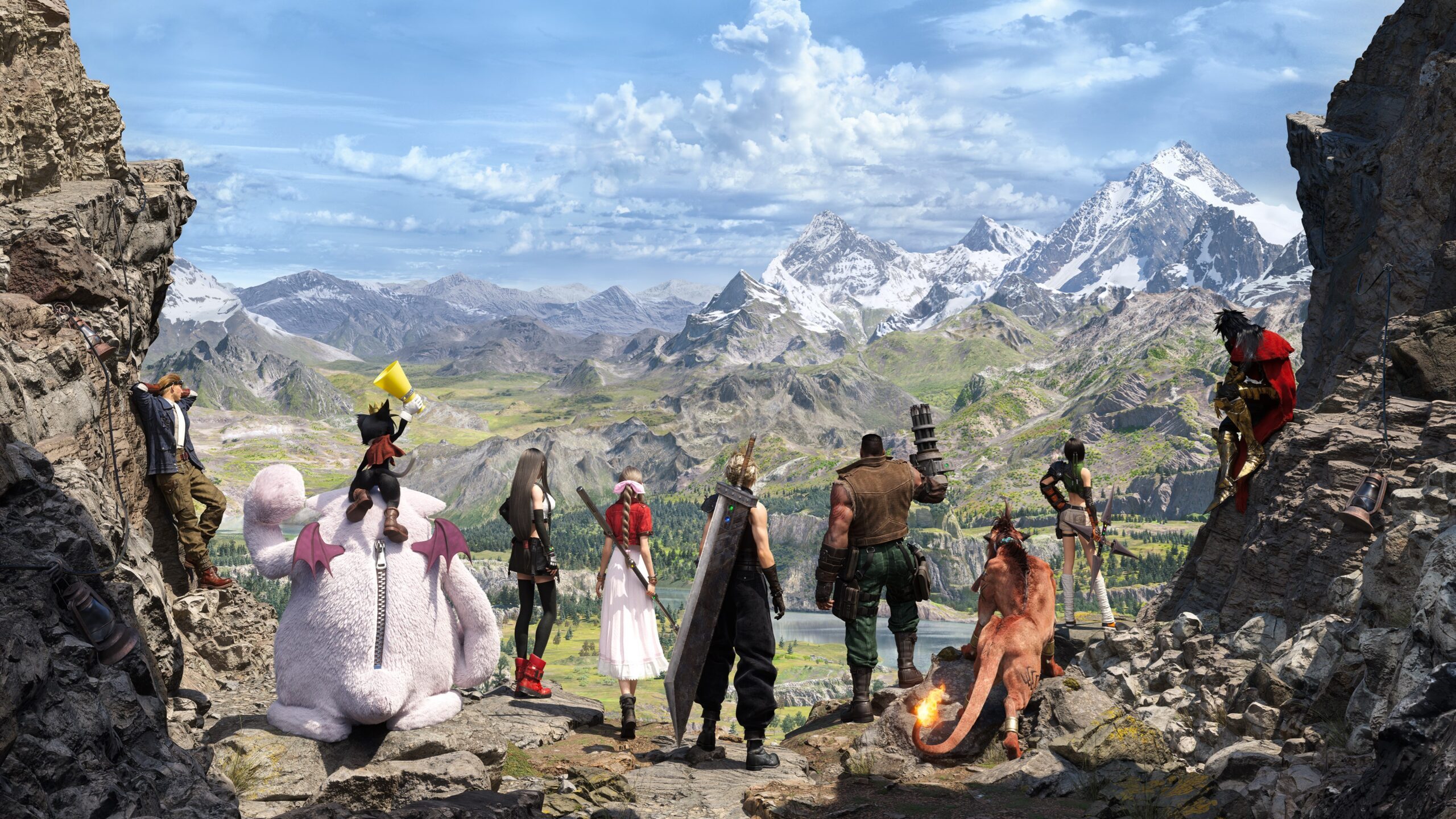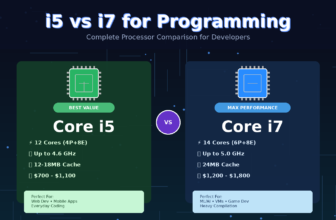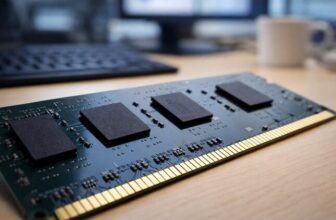
Your adventure beyond Midgar begins in just over a week when Final Fantasy VII Rebirth launches on PS5 February 29. You may have taken your first steps into that wider world already, thanks to the recent demo, or marveled at that expanse via the State of Play dedicated to the game. And what sights there are. Sprawling, densely detailed open areas and cityscapes, redesigned character models, reimagined threats and new enemies, side-quests and mini-games galore. Final Fantasy VII Rebirth packs a lot in.
To understand how this evocative experience is being achieved on PS5, we turned to the action RPG’s creators, which include the majority of Final Fantasy VII Remake’s development team. Looking under the hood with us? Final Fantasy VII Rebirth Director Naoki Hamaguchi, who has been on the FFVII Remake project since the start, to talk us through how the studio brought the world of FFVII Rebirth to life.

As a developer, what were your first impressions of the technology of the PS5?
With SSDs improving data loading speeds and allowing necessary resources to be loaded instantly, we felt that significant changes were needed in the system design to ensure a smooth gaming experience without any loading times for players. In fact, to take advantage of the high-speed SSDs in Final Fantasy VII Rebirth, the graphics pipeline and asset streaming system have been revamped from those of the previous title.
What learnings did you take from developing Final Fantasy VII Remake Intergrade to help you develop Final Fantasy VII Rebirth?
From the beginning, we were conscious of the disc size for Final Fantasy VII Rebirth, and we made it an absolute requirement for the disc size to be within 150G— even including the world map—while still allowing for cinematic locations to exist as they did in Final Fantasy VII Remake Intergrade. (Intergrade has a disc size of about 80GB.) For texture compression, experiencing the practical use of Oodle Kraken* and Oodle Texture** in Final Fantasy VII Remake Intergrade was very helpful in planning the disc size for this game. While the PS5 is equipped with an SSD which dramatically improves loading speed, there is still a limit to the size of the original disc that can be read, so this technology is truly indispensable.
Final Fantasy VII Rebirth was created as a PS5 game first and foremost, so how did you take advantage of the hardware when it came to the graphics and the gameplay?
To create a sense of density within the world map, rather than simply polishing how it looked within a single screenshot, we focused on increasing the actual “quantity” of assets to enhance the feeling of a well-populated map. PS5 has implemented a new PrimitiveShader as its own geometry pipeline, and in combination with the ComputeShader, the rendering pipeline was designed to be able to render a large quantity of assets. This approach also matched well with the SSD, which could load a large number of assets instantly. Through this, players can expect a beautiful, diverse, and expansive world to explore in Final Fantasy VII Rebirth.
How did you leverage the PS5 SSD’s capabilities in this game?
The PS4 version of Final Fantasy VII Remake had to be preloaded due to loading speed constraints, which squeezed the memory capacity and compromised assets. Streaming was also necessary, as we knew that the seamless world we needed to build for this game would be even more demanding in terms of memory usage compared to previous games. One of the challenges we found with Final Fantasy VII Remake Intergrade was that, in most cases after loading, the CPU processing time required to expand memory for additional space was too time-consuming, due to the high speed of SSDs. For this title, the CPU load for memory expansion is set to be as close to zero as much as possible, and the file format is designed to be a memory-allocated layout to take advantage of the high loading speed of SSDs. In particular, the pipelines for rendering and streaming background models were newly designed. The performance of PS5’s high-speed SSDs was incredibly helpful in loading assets in much finer increments, enabling us to render objects in a highly detailed manner when they’re up close, and more roughly when they’re in the distance.

Character models in both Final Fantasy VII Remake and the PS5 upgraded version Final Fantasy VII Remake Intergrade were – and still are – visually impressive. Did PS5 allow you to add any additional details to the returning cast’s designs?
The characters in Final Fantasy VII Remake Intergrade, including Cloud, were created based on the PS4 generation of consoles. This time, the models have been changed to meet the specifications of the PS5, and the main characters have been completely redesigned, from their hair to their outfits. In addition to the renewed character’s expressions during close-up shots, I’d love for people to take a close look at their detailed hair and skin as well. I believe you’ll be able to palpably feel the enhancement in physical textures and details.
Besides modeling and textures, Final Fantasy VII Rebirth also features enhanced shading, animation, and lighting, and the overall character visuals that combine these various components greatly exceed those of Final Fantasy VII Remake, so please look forward to it.
Similarly, the cast expands with the arrival of Cid, Cait Sith and Vincent. Did you apply the same creative process as the Final Fantasy VII Remake’s cast when reimagining these characters with modern technology?
New characters were created using essentially the same process, but I can say that this flow has been refined since Final Fantasy VII Remake. The majority of the development team from the previous title has continued working on Final Fantasy VII Rebirth, enabling us to start production with prior experience already gained and allowing us to really polish the physical textures and details of the new characters, Cid, Cait Sith, and Vincent. We hope you will take a closer look at these characters when you play the game.
PS5 developers have offered players the option to enjoy their games in either a Graphics mode that prioritizes 4K graphics, or Performance mode that prioritizes smooth action at 60FPS. Can you share what we can expect from Final Fantasy VII Rebirth, and why you decided on these options?
In Final Fantasy VII Rebirth, there is also a Graphics Mode that emphasizes 4K graphics and a Performance Mode that emphasizes 60 FPS, which users can freely select within the option menu. Selecting between these two modes has become a trend among players of PS5 games, so we felt it was an essential feature for this title as well.
The DualSense wireless controller’s unique features such as haptic feedback and adaptive triggers can immerse players more fully into the experience. How did you leverage these features for the game?
We’ve actively incorporated haptic feedback and adaptive triggers in battles and cutscenes— game segments with strong action elements and cinematic presentation— so that everything conveyed through the graphics is also directly synchronized with the controller too. In addition, because there are many minigames for this title, we plan to utilize the DualSense function for each minigame. In addition to haptic feedback and adaptive triggers, you can also experience a wide range of features, such as the motion sensor, built-in microphone, and touchpad.

How did you utilize 3D audio?
This title makes full use of Tempest3D audio. This allows for most of the voices, sound effects, and background music in the field to come from each object and character, with the sound varying according to its distance from the camera and the surrounding space. The 3D audio system also actively responds to verticality, and in some areas, we’ve placed different sounds above players for them to experience movement and objects within that dimension of space as well. We look forward to you experiencing the realistic and immersive ambiance that comes from this 3D audio, such as the Shinra helicopter flying over the field, or the various ambient noises within the vast Grasslands area, or the background music from the sky when you’re exploring the Gold Saucer. The recent SDK version upgrade also supports the Dolby Atmos output, so if you have a soundbar, speaker system, or other compatible devices in addition to headphones, you can enjoy this output as well.
Final Fantasy VII Remake Intergrade included a Photo Mode: is this feature returning in Final Fantasy VII Rebirth and has it had any changes?
Photo mode is, of course, implemented in Final Fantasy VII Rebirth. A photo frame function has been additionally implemented for this title as well, making it possible to select a frame of your choice for all of your favorite snapshots. In addition, Photo Mode itself is integrated into the game’s worldview, with side content featuring a photo enthusiast character named Snaps, who asks Cloud to snap pictures at various photo locations around the world map. Completing these requests will unlock additional photo mode features, so please look forward to those as well.
Is there any particular scene, location, moment of feature in Final Fantasy VII Rebirth that you feel really encapsulates what you’ve been able to achieve thanks to PS5?
To be honest, every scene utilizes so much of the PS5’s specs that it could not be realized without it… but if I had to pick one, it would be the town location. Towns require a large number of NPCs to be placed, while also increasing the density of assets in general. Crafting a sense of vibrancy and life for the NPCs in the town is something we put special care into, and I think you will be able to fully experience the PS5’s capabilities by walking through the streets. Personally, I love how the town of Junon is depicted during the inauguration parade of President Rufus, so I hope you can experience that for yourself in the game as well.
What other PS5 games have impressed you? From a developer’s point of view, how did you feel that they took advantage of the PS5’s capabilities?
Marvel’s Spider-Man 2 was a game that let me experience the capabilities of the PS5 the most out of the titles released in 2023. Utilizing SSDs truly sped up Spider-Man’s web-swings and wall runs, enhancing my exhilaration as I played. In addition, the fast travel feature was jaw-dropping, and I almost felt moved by how there was virtually no wait time when traveling via the map screen. Even from a developer’s perspective, I felt this was a game that could not have been actualized without the PS5’s high-speed SSD.

Final Fantasy VII Rebirth launches on PS5 February 29.
*Oodle Kraken is a data compression technology developed by RAD Game Tools, designed specifically for reducing the size of video game assets and improving loading times without sacrificing visual quality.
**Oodle Texture is a component of the Oodle suite that focuses specifically on texture compression. It employs innovative techniques to shrink texture file sizes while preserving their visual fidelity.
More on Final Fantasy VII Rebirth
Your adventure beyond Midgar begins in just over a week when Final Fantasy VII Rebirth launches on PS5 February 29. You may have taken your first steps into that wider world already, thanks to the recent demo, or marveled at that expanse via the State of Play dedicated to the game. And what sights there are. Sprawling, densely detailed open areas and cityscapes, redesigned character models, reimagined threats and new enemies, side-quests and mini-games galore. Final Fantasy VII Rebirth packs a lot in.
To understand how this evocative experience is being achieved on PS5, we turned to the action RPG’s creators, which include the majority of Final Fantasy VII Remake’s development team. Looking under the hood with us? Final Fantasy VII Rebirth Director Naoki Hamaguchi, who has been on the FFVII Remake project since the start, to talk us through how the studio brought the world of FFVII Rebirth to life.

As a developer, what were your first impressions of the technology of the PS5?
With SSDs improving data loading speeds and allowing necessary resources to be loaded instantly, we felt that significant changes were needed in the system design to ensure a smooth gaming experience without any loading times for players. In fact, to take advantage of the high-speed SSDs in Final Fantasy VII Rebirth, the graphics pipeline and asset streaming system have been revamped from those of the previous title.
What learnings did you take from developing Final Fantasy VII Remake Intergrade to help you develop Final Fantasy VII Rebirth?
From the beginning, we were conscious of the disc size for Final Fantasy VII Rebirth, and we made it an absolute requirement for the disc size to be within 150G— even including the world map—while still allowing for cinematic locations to exist as they did in Final Fantasy VII Remake Intergrade. (Intergrade has a disc size of about 80GB.) For texture compression, experiencing the practical use of Oodle Kraken* and Oodle Texture** in Final Fantasy VII Remake Intergrade was very helpful in planning the disc size for this game. While the PS5 is equipped with an SSD which dramatically improves loading speed, there is still a limit to the size of the original disc that can be read, so this technology is truly indispensable.
Final Fantasy VII Rebirth was created as a PS5 game first and foremost, so how did you take advantage of the hardware when it came to the graphics and the gameplay?
To create a sense of density within the world map, rather than simply polishing how it looked within a single screenshot, we focused on increasing the actual “quantity” of assets to enhance the feeling of a well-populated map. PS5 has implemented a new PrimitiveShader as its own geometry pipeline, and in combination with the ComputeShader, the rendering pipeline was designed to be able to render a large quantity of assets. This approach also matched well with the SSD, which could load a large number of assets instantly. Through this, players can expect a beautiful, diverse, and expansive world to explore in Final Fantasy VII Rebirth.
How did you leverage the PS5 SSD’s capabilities in this game?
The PS4 version of Final Fantasy VII Remake had to be preloaded due to loading speed constraints, which squeezed the memory capacity and compromised assets. Streaming was also necessary, as we knew that the seamless world we needed to build for this game would be even more demanding in terms of memory usage compared to previous games. One of the challenges we found with Final Fantasy VII Remake Intergrade was that, in most cases after loading, the CPU processing time required to expand memory for additional space was too time-consuming, due to the high speed of SSDs. For this title, the CPU load for memory expansion is set to be as close to zero as much as possible, and the file format is designed to be a memory-allocated layout to take advantage of the high loading speed of SSDs. In particular, the pipelines for rendering and streaming background models were newly designed. The performance of PS5’s high-speed SSDs was incredibly helpful in loading assets in much finer increments, enabling us to render objects in a highly detailed manner when they’re up close, and more roughly when they’re in the distance.

Character models in both Final Fantasy VII Remake and the PS5 upgraded version Final Fantasy VII Remake Intergrade were – and still are – visually impressive. Did PS5 allow you to add any additional details to the returning cast’s designs?
The characters in Final Fantasy VII Remake Intergrade, including Cloud, were created based on the PS4 generation of consoles. This time, the models have been changed to meet the specifications of the PS5, and the main characters have been completely redesigned, from their hair to their outfits. In addition to the renewed character’s expressions during close-up shots, I’d love for people to take a close look at their detailed hair and skin as well. I believe you’ll be able to palpably feel the enhancement in physical textures and details.
Besides modeling and textures, Final Fantasy VII Rebirth also features enhanced shading, animation, and lighting, and the overall character visuals that combine these various components greatly exceed those of Final Fantasy VII Remake, so please look forward to it.
Similarly, the cast expands with the arrival of Cid, Cait Sith and Vincent. Did you apply the same creative process as the Final Fantasy VII Remake’s cast when reimagining these characters with modern technology?
New characters were created using essentially the same process, but I can say that this flow has been refined since Final Fantasy VII Remake. The majority of the development team from the previous title has continued working on Final Fantasy VII Rebirth, enabling us to start production with prior experience already gained and allowing us to really polish the physical textures and details of the new characters, Cid, Cait Sith, and Vincent. We hope you will take a closer look at these characters when you play the game.
PS5 developers have offered players the option to enjoy their games in either a Graphics mode that prioritizes 4K graphics, or Performance mode that prioritizes smooth action at 60FPS. Can you share what we can expect from Final Fantasy VII Rebirth, and why you decided on these options?
In Final Fantasy VII Rebirth, there is also a Graphics Mode that emphasizes 4K graphics and a Performance Mode that emphasizes 60 FPS, which users can freely select within the option menu. Selecting between these two modes has become a trend among players of PS5 games, so we felt it was an essential feature for this title as well.
The DualSense wireless controller’s unique features such as haptic feedback and adaptive triggers can immerse players more fully into the experience. How did you leverage these features for the game?
We’ve actively incorporated haptic feedback and adaptive triggers in battles and cutscenes— game segments with strong action elements and cinematic presentation— so that everything conveyed through the graphics is also directly synchronized with the controller too. In addition, because there are many minigames for this title, we plan to utilize the DualSense function for each minigame. In addition to haptic feedback and adaptive triggers, you can also experience a wide range of features, such as the motion sensor, built-in microphone, and touchpad.

How did you utilize 3D audio?
This title makes full use of Tempest3D audio. This allows for most of the voices, sound effects, and background music in the field to come from each object and character, with the sound varying according to its distance from the camera and the surrounding space. The 3D audio system also actively responds to verticality, and in some areas, we’ve placed different sounds above players for them to experience movement and objects within that dimension of space as well. We look forward to you experiencing the realistic and immersive ambiance that comes from this 3D audio, such as the Shinra helicopter flying over the field, or the various ambient noises within the vast Grasslands area, or the background music from the sky when you’re exploring the Gold Saucer. The recent SDK version upgrade also supports the Dolby Atmos output, so if you have a soundbar, speaker system, or other compatible devices in addition to headphones, you can enjoy this output as well.
Final Fantasy VII Remake Intergrade included a Photo Mode: is this feature returning in Final Fantasy VII Rebirth and has it had any changes?
Photo mode is, of course, implemented in Final Fantasy VII Rebirth. A photo frame function has been additionally implemented for this title as well, making it possible to select a frame of your choice for all of your favorite snapshots. In addition, Photo Mode itself is integrated into the game’s worldview, with side content featuring a photo enthusiast character named Snaps, who asks Cloud to snap pictures at various photo locations around the world map. Completing these requests will unlock additional photo mode features, so please look forward to those as well.
Is there any particular scene, location, moment of feature in Final Fantasy VII Rebirth that you feel really encapsulates what you’ve been able to achieve thanks to PS5?
To be honest, every scene utilizes so much of the PS5’s specs that it could not be realized without it… but if I had to pick one, it would be the town location. Towns require a large number of NPCs to be placed, while also increasing the density of assets in general. Crafting a sense of vibrancy and life for the NPCs in the town is something we put special care into, and I think you will be able to fully experience the PS5’s capabilities by walking through the streets. Personally, I love how the town of Junon is depicted during the inauguration parade of President Rufus, so I hope you can experience that for yourself in the game as well.
What other PS5 games have impressed you? From a developer’s point of view, how did you feel that they took advantage of the PS5’s capabilities?
Marvel’s Spider-Man 2 was a game that let me experience the capabilities of the PS5 the most out of the titles released in 2023. Utilizing SSDs truly sped up Spider-Man’s web-swings and wall runs, enhancing my exhilaration as I played. In addition, the fast travel feature was jaw-dropping, and I almost felt moved by how there was virtually no wait time when traveling via the map screen. Even from a developer’s perspective, I felt this was a game that could not have been actualized without the PS5’s high-speed SSD.

Final Fantasy VII Rebirth launches on PS5 February 29.
*Oodle Kraken is a data compression technology developed by RAD Game Tools, designed specifically for reducing the size of video game assets and improving loading times without sacrificing visual quality.
**Oodle Texture is a component of the Oodle suite that focuses specifically on texture compression. It employs innovative techniques to shrink texture file sizes while preserving their visual fidelity.





